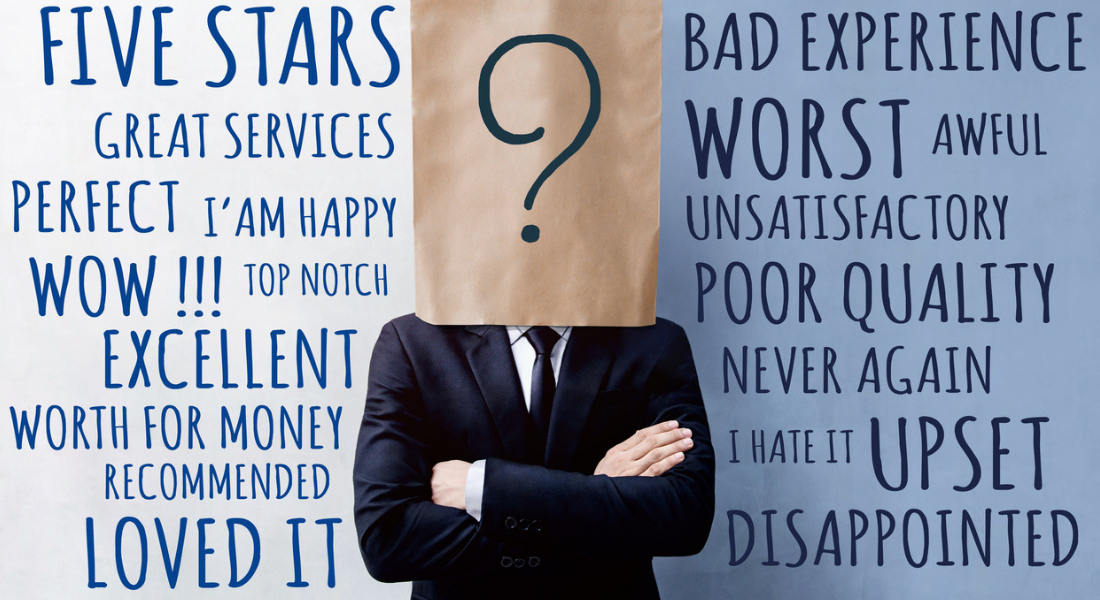T he issue of online trust is one that has been snowballing since the 2016 US election.
News sources and social media outlets have increasingly been scrutinised by the public for distributing “fake” stories. Governments, struggling to keep up with the wave of change, are finally starting to implement diligent checks and firmer regulations. And this is forcing tech giants like Facebook to up their moderation game and stem the flow of fake information, purporting to be real, from being spread online. Recent progress is going some way to allaying public concern about misinformation – but it’s only the tip of the iceberg. Our online world is now seeped in inaccuracy and exaggeration. This isn’t just restricted to news and social media outlets, but can be found on eCommerce and review sites too. An entire industry exists to support “fakeness”.
It’s no secret that validation from peers can have a huge impact on buyer behaviour, both in the B2C and B2B world. In the UK alone, the government’s Competition and Markets Authority has estimated that reviews on eCommerce and review sites, like TripAdvisor, could potentially influence a mammoth £23bn of UK customer spending every year. So reviews are big business.
Wolves in sheep’s clothing
We all know how overwhelming it can be choosing from hundreds of products online; a quick scan over a product’s reviews can help us navigate the marketplace faster. But it’s rare that we take the time to scrutinise the author of these reviews, especially if they are listed as “verified”. However, it’s important to recognise that these marks of authenticity are all too easily falsified.
How fake reviews come into existence is threefold. Independent individuals, employees and businesses have all been reported as complicit in generating false positive and negative reviews. The BBC recently shared the story of Iain Taylor, a regular guy with a questionable side hustle. Taylor supplements his income through writing fake reviews for a range of products “from numbing creams, to e-Books”. He says, unabashedly, that “everyone’s doing it” and has informed his friends and family to never trust online reviews again.
Incentivised reviews can also come from a company itself. A restaurant in Norwich was recently knocked off the top spot on TripAdvisor after a worker posted fake reviews for the chance to win a £10 Amazon voucher. As embarrassing as this is, it is far less troubling than the insidious practices of some businesses. In a practice known as “brushing” some companies operating through platforms such as Amazon are obtaining user details and setting up new accounts in their name. Individuals are then sent unsolicited packages in order to “verify” a purchase so that a fake review can be written by the company. This is unfortunately not uncommon – a “Which?” article on the topic received 64 comments from people complaining that they had fallen victim to “brushing”.
But fake or incentivized reviews aren’t limited to consumer sites. People searching for a new piece of software for their business are just as likely to be swayed by five stars as those looking for a new screwdriver or where they should have dinner. The practice of encouraging users of your product to leave a five-star review on sites such as G2 Crowd, complete with a glowing comment, in exchange for a healthy Amazon voucher, is commonplace. And several online bloggers have also written about how easy the system is to hack. Although G2 uses LinkedIn profiles to validate user authenticity, it seems this is not enough.
Searching for a solution
As consumers, we are wising up. A recent article in The Drum reported that only 8% of internet users believe that the bulk of information shared on social media is true, dropping to 4% when it comes from influencers. Some of this change comes as a direct result of misfortune at the hands of false information. During April’s PRCA World of Media event, beauty journalist Becci Vallis (Stylist magazine) described the horrific skin reactions young girls were suffering after using products suggested by ill-informed influencers.
So should we all become cynics and never trust online reviews again? Whilst it certainly isn’t the case that all reviews are written by fraudsters it’s clearly a cause for concern. Furthermore, we wilfully absorb a lot of biased content in plain sight, such as “sponsored” posts and paid influencers, so any mindset change needs to take into account the whole spectrum of ‘fake-ness’.
Ultimately, taking reviews with a pinch of salt and appreciating that they are subjective is the best place to start when scanning the reviews of any product.
Share this:




